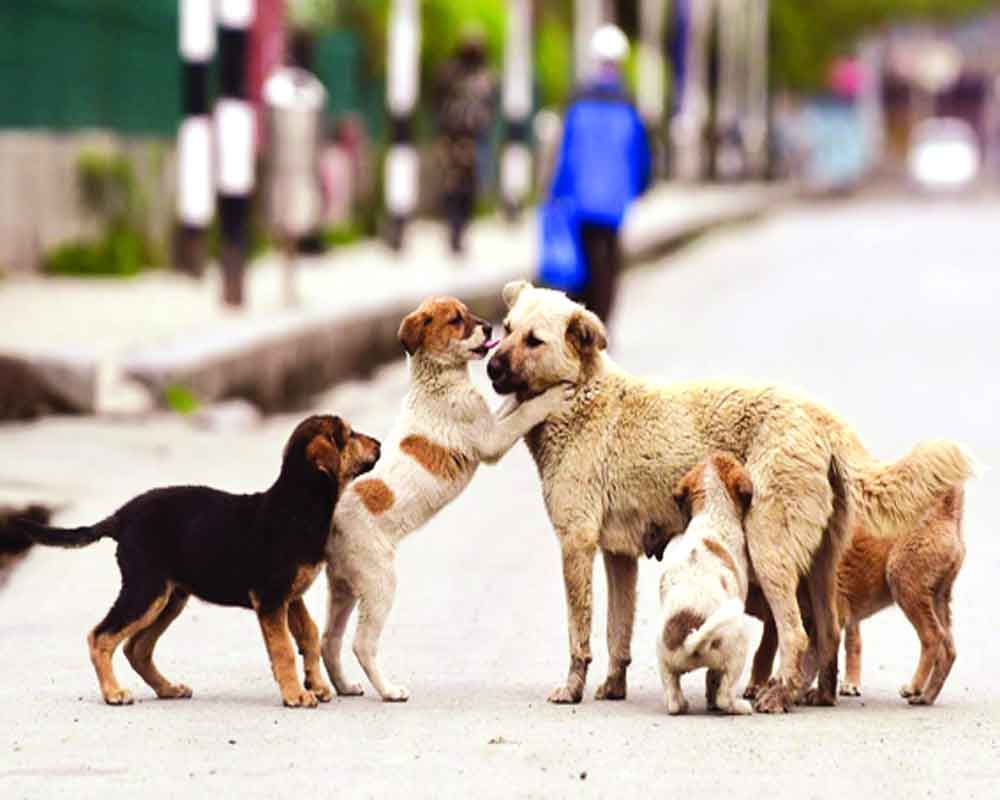The heartless and brutal killing of a puppy by a child in Greater NOIDA must cause serious concern and introspection
The Pioneer reported on February 5, 2024, a shocking act of cruelty in which a child living in a high-rise building in Gaur City in Greater NOIDA, Uttar Pradesh, threw a puppy down from a height, killing it. Neither the adult who was allegedly with him, nor any of the passers-by, stopped him. A People for Animals (PFA) volunteer, Surabhi Rawat, has filed a FIR against unknown persons perpetrating the horrendous act. Registered by the Greater NOIDA police, it calls for the child's appearance before a juvenile court and an assessment of his mental State.
The Pioneer report quotes PFA trustee, Ambika Shukla, expressing concern about the child’s lack of feeling, and saying, “It reveals a psychopathic tendency that must be dealt with urgently lest we find a monster in our midst. Those who hurt and abuse animals set a dangerous example that can lead to tragic consequences….” She is right, and it is not just a dangerous example but a very dangerous indication.
In their paper titled “Childhood Cruelty to Animals and Subsequent Violence against Humans,” published in The International Journal of Offender Therapy and Comparative Criminology in 2001, Linda Merz-Perez, Kathleen M Heide and Ira Silverman, who had interviewed 45 violent and 45 non-violent offenders in a maximum-security facility in Sumter County, Florida, in the United States. wrote, “The overall results of the [their] study support previous research efforts indicating a relationship between cruelty to animals committed during childhood and later violence perpetuated against humans. The findings indicate that offenders who committed violent crimes as adults were significantly more likely than adult nonviolent offenders as children to have committed acts of cruelty against animals in general and pet and stray animals in particular.”
In their paper, “From Animal Cruelty to Serial Murder: Applying the Gradation Hypothesis” in the same journal in 2003, Jeremy Wright and Christopher Hensley write, “Since the late 1970s, the FBI has considered animal cruelty to be a possible indicator of future serial murder. The FBI documented the connection between cruelty to animals and serial murder following a study of 35 imprisoned serial murderers. The convicted murderers were asked questions regarding their childhood cruelty toward animals. More than half of the serial murderers admitted to hurting or torturing animals as children or adolescents.”
One tortures or hurts animals or humans out of cruelty, the primary cause of which is hatred, conscious or sub-conscious. Hatred can be directed against individual human beings or animals, the latter in general or particular species thereof. Hatred can target groups of people because of their ethnicity, religion, ideological or political beliefs or caste. Hatred causes not only crimes like murder or assault against individuals but rioting against groups of people or, in the worst instance, genocide, as by Pakistan in Bangladesh during the latter’s struggle for liberation from Islamabad's colonial rule in 1971.
The child, who murdered the puppy, seems to be growing up in an environment awash with hatred. The Pioneer report quotes Surabhi Rawat as saying, “In the same society, just days ago, a person intentionally crushed a puppy under his vehicle. Another puppy was found dead in suspicious circumstances, possibly poisoned. An autopsy will be conducted. The reason for such brutal actions against puppies is the hatred spewed on the society’s WhatsApp group. Kids nowadays have phones and get easily influenced by adults who indulge in fear-mongering and spread hatred towards stray animals throughout the day.”
The child here may not turn into a serial killer or a criminal of any other kind. It is, however, not just a question of what he becomes. The conduct of the passers-by, who did nothing to stop him or perhaps even tacitly approved of his action, is worrying. It reflects an insensitivity to cruelty and a disinclination to face the consequences of intervening or even undergoing the exertion involved in the process. All this is a part of a mindset that has prevented action that, at global and national levels, might have aborted the rise of dictators like Hitler and Mussolini. It would be worthwhile here to recall pastor Martin Neimoller's famous words.
“First they came for the Communists/ And I did not speak out/
Because I was not a Communist.
“Then they came for the Socialists/ And I did not speak out /Because I was not a Socialist
“Then they came for the trade unionists/ And I did not speak out/ Because I was not a trade unionist.
“Then they came for the Jews// And I did not speak out/ Because I was not a Jew
“Then they came for me/ And there was no one left/ To speak out for me.”
One needs to speak out against cruelty to animals which is rooted in hatred. A society, where hatred and anger are widespread, can be the seedbed of a sinister ideology like Nazism besides producing a leader like Hitler and a people ready to respond to his fulminations.
The result in Germany was a political order like the Third Reich marked by concentration camps and genocide of Jews. Hence, one needs to remember the words of the German philosopher Theodor Adorno, “Auschwitz begins wherever someone looks at a slaughterhouse and thinks: they're only animals.”
(The author is Consulting Editor, The Pioneer. The views expressed are personal)


























